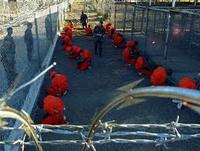-
NYPD spying on Muslims leads to spiral of mistrust
Following the revelation that the New York City police department was spying on the daily lives of ordinary Muslims, community activists have launched a campaign encouraging people to avoid directly reporting suspicious activity to the police
-
-
Pennsylvania’s homeland security office to operate out of state police HQ
The Pennsylvania Governor’s Office of Homeland Security will move its operations to the Pennsylvania State Police (PSP) headquarters in Harrisburg; the office was merged into the Pennsylvania Emergency Management Agency (PEMA) during the previous administration, but the governor determined that relocating the office to the state police headquarters would result in an even greater combination of intelligence gathering and sharing
-
-
Cyber attacks on critical infrastructure reach U.S.
Most of the U.S. critical infrastructure is run by computers which are connected to the Internet; this makes them susceptible to cyber attacks; a few days ago the control system of a water pump in Illinois was taken over by a hacker’s remote command, and then deliberately destroyed; what critical infrastructure facilities will hackers — nerdy teenagers, terrorists, or intelligence operatives of other nations — target next?
-
-
Terrorist attacks and the false specter of security
With the recent passing of the tenth anniversary of the creation of the Transportation Security Administration, the United States would benefit greatly from a candid discussion on the nature of terrorism and the current rhetoric surrounding it; the fact is, no wall, law, or interrogation technique will keep us 100 percent safe from violent terrorist acts; the sooner we acknowledge this morbid reality, the sooner we can begin focusing on a long under-emphasized aspect of counterterrorism: the psychological dimension of terrorism – an area where we are losing ground
-
-
Domestic terrorist on FBI wanted list may be in Massachusetts

The FBI believes they may have found Daniel Andreas San Diego, the first domestic terrorist to be placed on the FBI’s Most Wanted Terrorist list, in Northampton, Massachusetts; San Diego is wanted for bombing two companies in 2003 that were related to a firm that engaged in animal testing and there is currently a $250,000 reward for information leading to his arrest
-
-
Cyber attacks on critical infrastructure reach U.S.
Most of the U.S. critical infrastructure is run by computers which are connected to the Internet; this makes them susceptible to cyber attacks; a few days ago, the control system of a water pump in Illinois was taken over by a hacker’s remote command, and then deliberately destroyed; what critical infrastructure facilities will hackers – nerdy teenagers, terrorists, or intelligence operatives of other nations – target next?
-
-
U.S. probing use of U.S.-made surveillance technology in Syria
U.S. Department of Commerce officials are seeking to determine whether Blue Coat Systems of Sunnyvale, California, knew its equipment and software were being used by the Syrian government to monitor anti-government demonstrators. If Commerce find that Blue Coat knowingly violated technology export and licensing rules, it could fine the company up to $1 million.
-
-
U.S. investigates Illinois pump failure as cyber attack on infrastructure
The U.S. government is looking into the possibility that a cyber attack may have been responsible for the failure of a water pump at a public water district in Illinois last week; such an attack would be worrisome because cyber attacks on businesses are commonplace, but attacks that invade industrial control systems and intentionally destroy equipment are unknown in the United States.
-
-
Syria: the end game
The willingness of the Assad regime in Syria to unleash a brutal suppression campaign against the anti-regime movement, and the reluctance of outside forces openly to intervene – as they did in Libya — to curb the regime’s ability to use its military superiority to suppress the insurgency, have led analysts to argue that the Assad government can outlast its opponents and emerge victorious, if bloodied, from the this latest challenge; the emergence of the Free Syrian Army (FSA) – especially if aided by Saudi Arabia – and the move by Turkey to assume a more active role in Syria, may well spell the end of the regime
-
-
Unused DHS fund help Pasadena upgrade helos
The city of Pasadena will use leftover funds from the 2008 Homeland Security Act to purchase a number of upgrades for its air operations unit; on 13 November the city council approved spending the remaining $650,000 of the original grant to purchase an array of high-tech devices, including an infrared camera, night-vision technology, and quiet technology tail rotor blades
-
-
New Jersey first responders to get universal IDs
Starting next year, 12,000 first responders in New Jersey will receive special IDs to help enhance security and cut down on identity fraud during emergencies and natural disasters
-
-
Senate reaches deal on custody over terrorism suspects

On Tuesday several Senators from the Armed Services Committee reached an agreement on the controversial handling and prosecution of suspected terrorists; the agreement, struck by Senator Carl Levin (D-Michigan) and Senator John McCain (R-Arizona) would allow the military custody of all suspected terrorists except when the administration makes “a national security determination” to keep the detainee in civilian custody
-
-
Texas man convicted of terrorism charges

On Wednesday a Texas man, who had been in contact with the radical cleric Anwar al Awlaki, was convicted of attempting to provide material support to al Qaeda in the Arabian Peninsula (AQAP); Barry Walter Bujol Jr. was arrested when he boarded a ship at the Port of Houston, which he was led to believe was bound for Algeria where he would stay at an al Qaeda safe haven before heading to Yemen
-
-
Alabama lawmakers backpedal on tough immigration law
Republican senators in Alabama are currently working on a series of amendments that would ameliorate the tough immigration law that has sharply divided the state
-
-
Kentucky allowed to rely on God for homeland security
The Kentucky Court of Appeals recently ruled to allow the state to continue relying on God for help in homeland security matters; a three-judge panel ruled two-to-one to reject a lower court decision to overturn state legislation to credit God with protecting the state
-
More headlines
The long view
Factories First: Winning the Drone War Before It Starts
Wars are won by factories before they are won on the battlefield,Martin C. Feldmann writes, noting that the United States lacks the manufacturing depth for the coming drone age. Rectifying this situation “will take far more than procurement tweaks,” Feldmann writes. “It demands a national-level, wartime-scale industrial mobilization.”
No Nation Is an Island: The Dangers of Modern U.S. Isolationism
The resurgence of isolationist sentiment in American politics is understandable but misguided. While the desire to refocus on domestic renewal is justified, retreating from the world will not bring the security, prosperity, or sovereignty that its proponents promise. On the contrary, it invites instability, diminishes U.S. influence, and erodes the democratic order the U.S. helped forge.
Fragmented by Design: USAID’s Dismantling and the Future of American Foreign Aid
The Trump administration launched an aggressive restructuring of U.S. foreign aid, effectively dismantling the United States Agency for International Development (USAID). The humanitarian and geopolitical fallout of the demise of USAID includes shuttered clinics, destroyed food aid, and China’s growing influence in the global south. This new era of American soft power will determine how, and whether, the U.S. continues to lead in global development.
Water Wars: A Historic Agreement Between Mexico and US Is Ramping Up Border Tension
As climate change drives rising temperatures and changes in rainfall, Mexico and the US are in the middle of a conflict over water, putting an additional strain on their relationship. Partly due to constant droughts, Mexico has struggled to maintain its water deliveries for much of the last 25 years, deliveries to which it is obligated by a 1944 water-sharing agreement between the two countries.
How Disastrous Was the Trump-Putin Meeting?
In Alaska, Trump got played by Putin. Therefore, Steven Pifer writes, the European leaders and Zelensky have to “diplomatically offer suggestions to walk Trump back from a position that he does not appear to understand would be bad for Ukraine, bad for Europe, and bad for American interests. And they have to do so without setting off an explosion that could disrupt U.S.-Ukrainian and U.S.-European relations—all to the delight of Putin and the Kremlin.”
How Male Grievance Fuels Radicalization and Extremist Violence
Social extremism is evolving in reach and form. While traditional racial supremacy ideologies remain, contemporary movements are now often fueled by something more personal and emotionally resonant: male grievance.
